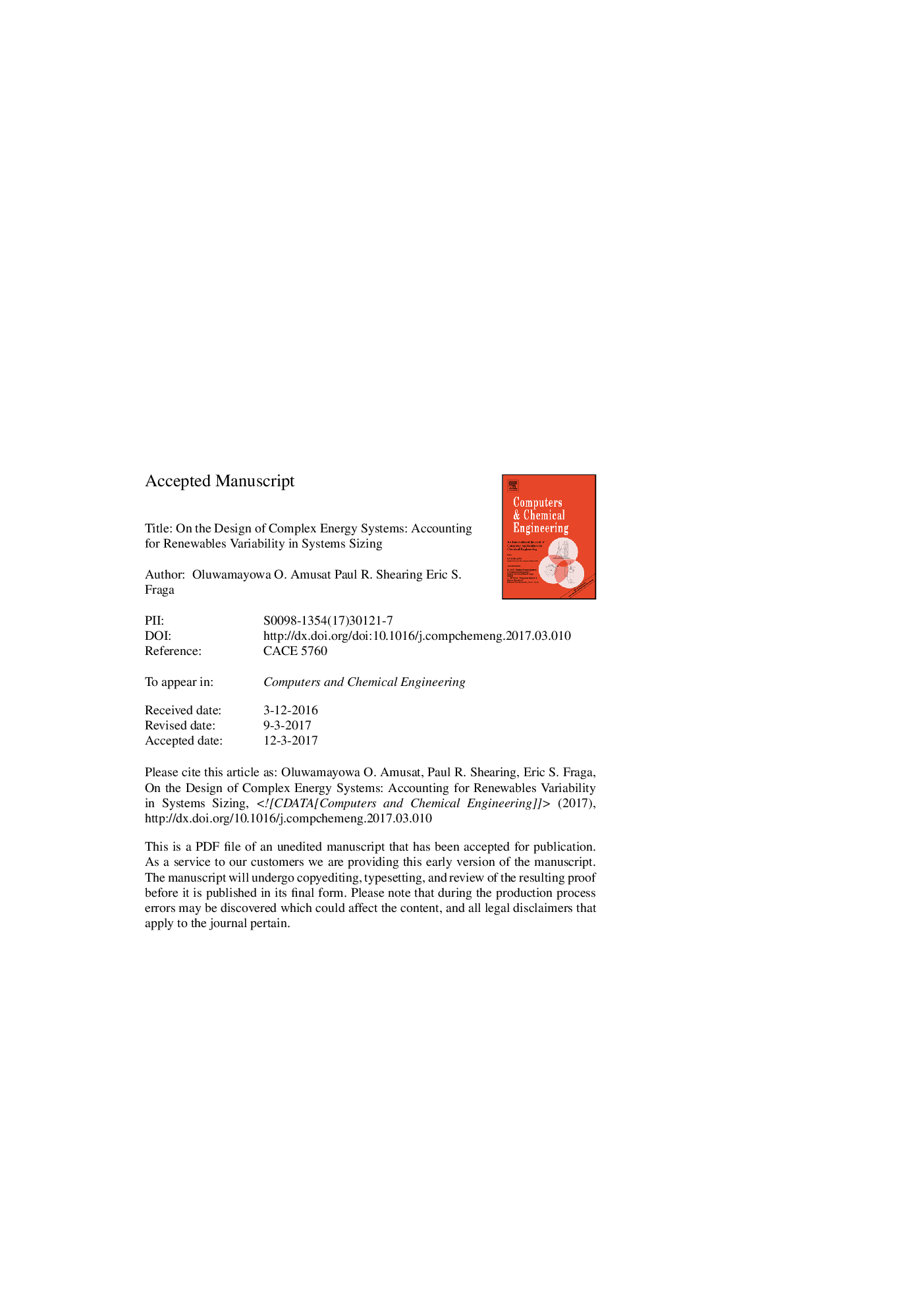| Article ID | Journal | Published Year | Pages | File Type |
|---|---|---|---|---|
| 4764594 | Computers & Chemical Engineering | 2017 | 22 Pages |
Abstract
The variability challenge inherent in the design and sizing of stand-alone renewables-based energy systems incorporating storage is addressed at the design stage. The framework developed for reliability evaluation combines the stochastic modelling of renewable resources with chronological simulation of energy system performance for the evaluation of system reliability. The effect of inter-year variability is quantified by using a modified form of the loss of power supply probability as the reliability objective. A bi-criteria problem of capital cost minimization and reliability maximization is solved for two cases of remotely-located mining operations in Chile and Canada to demonstrate the capabilities of the methodology. Approximations to the Pareto-optimal fronts generated using a multi-objective genetic algorithm (NSGA-II). The performances of the minimum-cost designs generated are investigated in each case. The methodology provides the decision maker with necessary information about a number of alternative designs based on which sizing decisions may be made.
Related Topics
Physical Sciences and Engineering
Chemical Engineering
Chemical Engineering (General)
Authors
Oluwamayowa O. Amusat, Paul R. Shearing, Eric S. Fraga,
